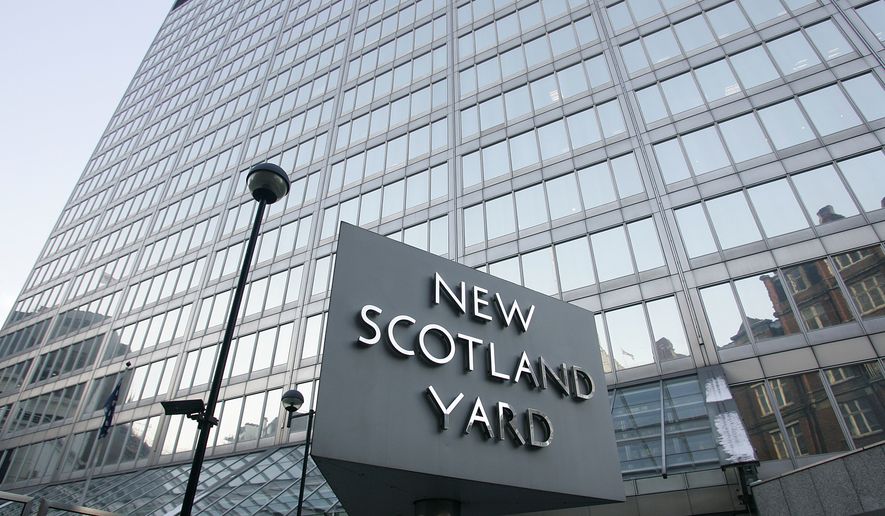Media outlets could face criminal charges for publishing leaked documents belonging to outgoing British ambassador, Kim Darroch, the London Metropolitan Police warned Saturday.
The agency’s assistant commissioner said that media outlets risk violating the U.K. Official Secrets Act if they publish stolen documents lacking public interest.
Neil Basu issued the warning in a statement a day after announcing that Scotland Yard’s counter-terrorism office had launched a criminal investigation spurred by the recent unauthorized publication of official memos written by Mr. Darroch, a a career British diplomat who subsequently resigned this week as the British ambassador to the U.S.
“The Metropolitan Police respects the rights of the media and has no intention of seeking to prevent editors from publishing stories in the public interest in a liberal democracy,” Mr. Basu said Saturday.
“The focus of the investigation is clearly on identifying who was responsible for the leak,” the assistant police commissioner added. “However, we have also been told the publication of these specific documents, now knowing they may be a breach of the OSA, could also constitute a criminal offence and one that carries no public interest defence.”
Mr. Darroch, 65, had served as the U.K. ambassador to the U.S. since early 2016. He described President Trump and his administration in memos leaked this month as “radiating insecurity” and “clumsy and inept,” respectively, setting off a spat with the White House that resulted in the diplomat offering his resignation Wednesday.
“The current situation is making it impossible for me to carry out my role as I would like,” explained Mr. Darroch in his resignation letter.
London’s leading law enforcement agency, the Met announced its leak probe on the heels of Jeremy Hunt, the U.K. foreign secretary, stating that authorities would “follow all avenues of inquiry to try to understand how this happened.”
The U.K. Official Secrets Act of 1989 effectively criminalizes the unlawful disclosure of certain sensitive information, including matters concerning international relations. Prosecutions under the statute are rare and brought at a rate of fewer than one per year, according to Parliament.
• Andrew Blake can be reached at ablake@washingtontimes.com.




Please read our comment policy before commenting.